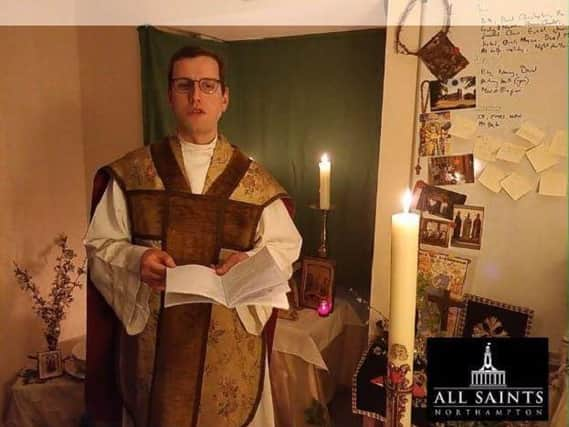'We are not all in it together....we are all in it, but some more than others'


Can you remember, back in the opening months of the era of austerity (which we must remember is definitely, definitely over and has ended twice now), the advent of the phrase: ‘we’re all in this together’?
It wasn’t and wouldn’t ever be true, of course, but it was a reflection that the times we were living through would have deep-running and long-lasting consequences for many.
Advertisement
Hide AdAdvertisement
Hide AdSuffering is relative, and lasting questions exist on whether the suffering of those with much to lose may in any way be comparable with those who lose as much while having less in the first place.
Such a phrase has been recapitulated in entirety or in spirit many times over the past few weeks, but as we’ve discovered, the coronavirus might not discriminate whom it infects, but it certainly discriminates between those who come to serious harm by it.
The stories of disproportionate BAME deaths, higher rates among the elderly or those with certain comorbidities, and the recent frightening cases that have involved children and young people attest both to the capriciousness of such a virus and the reality that some of us live under greater threat.
This is nature telling us we’re not all in it together, or rather that we’re all in it, but some more than others.
Advertisement
Hide AdAdvertisement
Hide AdThe press coverage of lockdown has focussed on exception no less, and oft-chanted (and off-colour) cries of ‘covidiot’ are a condemnation, writ large, of those who conversely increase risk and the collective effort to keep the ‘R’ down.
This term has miraculously vanished from the discourse of recent days (at least, that which I’ve seen) since the revelations that the prime minister’s chief advisor breached (or ‘may have’, Durham Constabulary announced) the letter and spirit of the rules.
I suppose if there is little clear definition in the rules, save three-word slogans and vague direction, then anything might become permissible given the right circumstances, but if that had ever been the case, we’d have never gotten the ‘R’ down through collective action.
In such circumstances, an apology might, or an acknowledgement that at a difficult time decision-making can become blurry, but to admit as much would be to renege on the spirit of ‘we’re all in it together’.
Advertisement
Hide AdAdvertisement
Hide AdAs I write, news of widespread rioting in the United States is breaking in response to the appalling death of George Floyd.
We’ve got some trouble with the police and justice in our own country, but rarely have we seen a British police officer restraining a person pleading for his mother that he can’t breathe, a cry that has now become a motto.
Here is an America defined by a belligerent cry of ‘they’re not in it with us’, or the supplicating cry for justice embodied in ‘Black lives matter’, and we get to see how corrosive it is when belonging degrades amid an absence of justice, liberty and the promise of equal security whomever you are, and wherever your heritage lies.
The ‘letter killeth, but the spirit gives life’, wrote St Paul in a letter included in the Bible.
Advertisement
Hide AdAdvertisement
Hide AdAnd while keeping the letter simple might evade culpability, we know that the spirit demands some sort of evidence that you’ve skin in the game if you’re going to try and convince us that ‘we’re all in it together’.